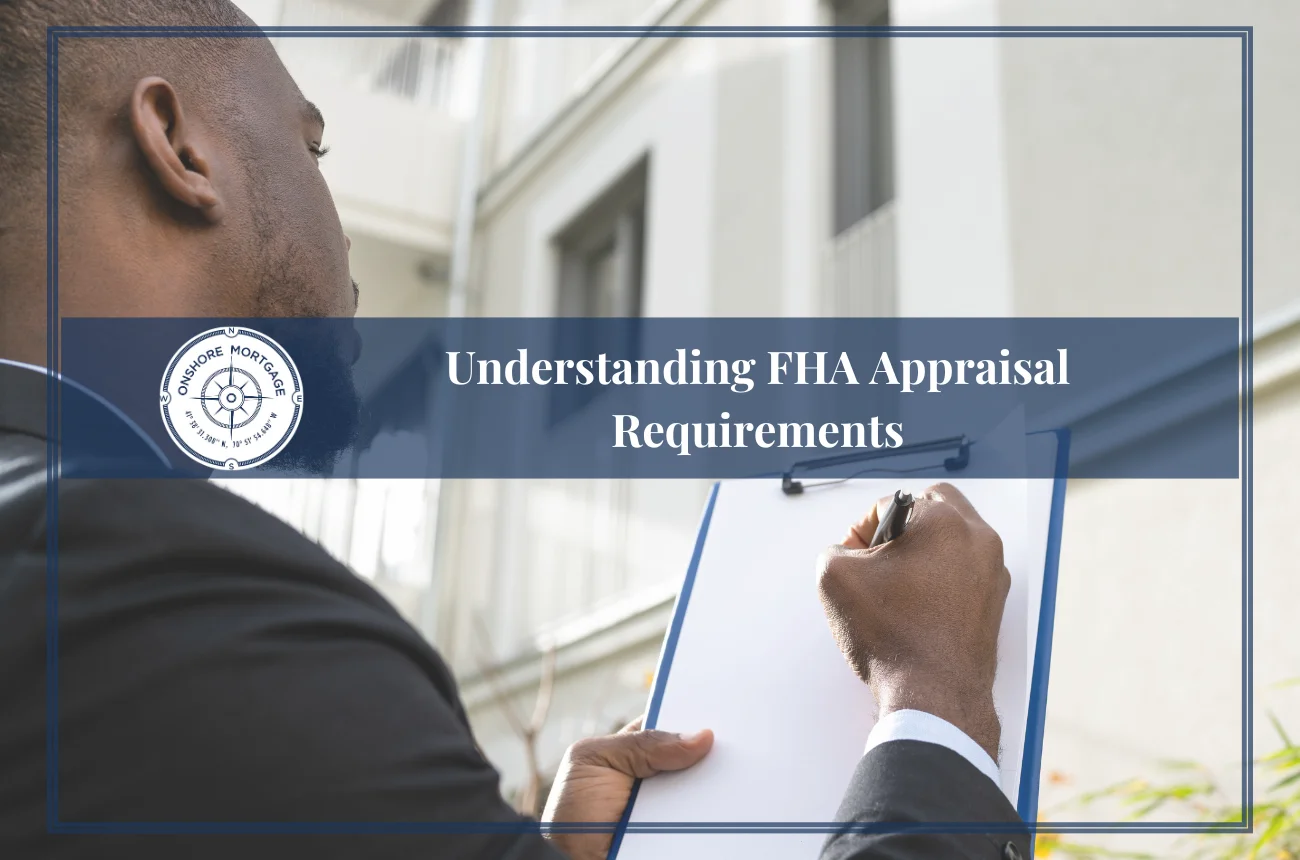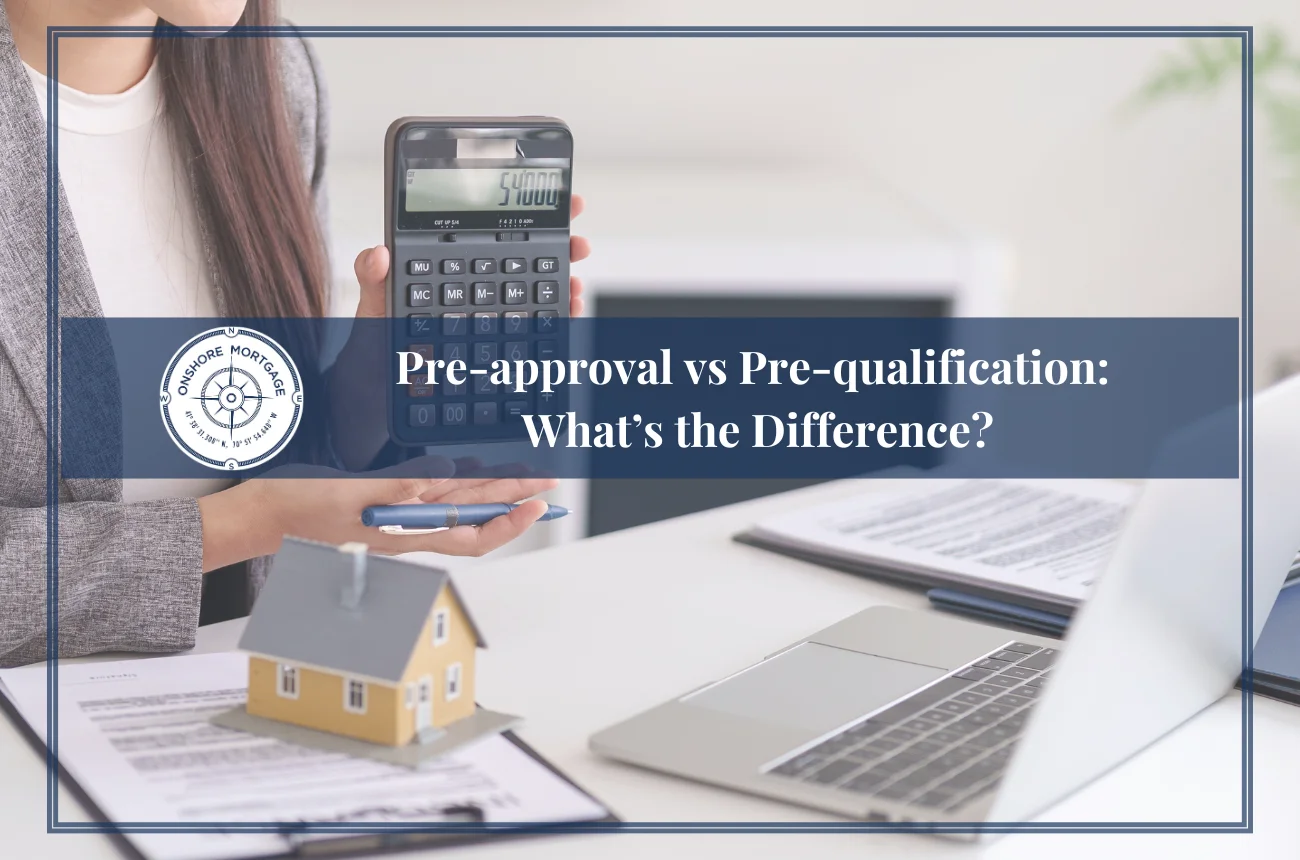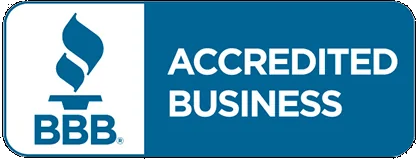

Understanding FHA Appraisal Requirements
Discover what FHA appraisers look for, how the process works, and why meeting HUD standards is essential for getting approved for an FHA loan.
Buying a home with an FHA loan offers many advantages, especially for first-time buyers. These benefits include lower down payment requirements and more flexible credit guidelines. However, FHA loans also come with specific conditions that you need to understand before moving forward. One of the most important steps in the process is the FHA appraisal. It is important to know that an FHA appraisal is different from a home inspection. A home inspection is typically arranged by the buyer and is designed to uncover issues with the home's condition or potential repairs. In contrast, an FHA appraisal serves two purposes. It estimates the market value of the home and ensures that the property meets the minimum safety and livability standards set by the U.S. Department of Housing and Urban Development. If you are planning to use an FHA loan to buy a home, understanding the appraisal process is a key part of preparing for your purchase.
What Is an FHA Appraisal?
An FHA appraisal is more than just a standard assessment of a home's value. It serves a dual purpose:
- Determine Market Value: Like any other mortgage appraisal, the goal is to ensure the home’s price reflects current market conditions.
- Assess Property Condition: FHA appraisers are also responsible for verifying that the home meets the minimum property standards set by the U.S. Department of Housing and Urban Development (HUD).
This means an FHA appraisal includes both a professional valuation and a basic safety inspection.
What Does the Appraiser Look For?
An FHA appraisal is not just about valuing the home—it also ensures the property meets HUD’s Minimum Property Standards. Below is a breakdown of what the appraiser inspects and why it matters:
🏚️ A Sound Foundation and Roof with No Significant Damage
The appraiser will evaluate the home's structural integrity. Cracks in the foundation, sagging roofs, or signs of water intrusion may signal major issues. The home must have a solid, undamaged foundation and roof that can reasonably be expected to last for the near future without major repairs. If there are signs of structural defects, the loan could be delayed or denied until those issues are corrected.
🚪 Safe Access to the Home (Both Physically and Legally)
The property must be easily and safely accessible year-round by foot or vehicle. This means no unsafe staircases, crumbling walkways, or unmarked boundaries. Additionally, there must be legal access (such as an easement or public road) to enter and exit the property without crossing someone else’s land without permission.
🔌 Functioning Utilities (Water, Electricity, Heating)
The appraiser will confirm that the home's essential systems are working properly. This includes running water, functioning plumbing, an active electrical system, and a reliable heat source. All utilities must be operational at the time of the appraisal. Properties without basic functioning utilities may not qualify until repairs are made.
⚠️ No Exposed Wiring or Unsafe Electrical Components
Safety is a top priority. Any loose wires, missing outlet covers, open electrical panels, or outdated, hazardous wiring could be flagged as a safety concern. The electrical system must be up to code and fully enclosed to prevent fire or electrocution hazards.
🎨 No Peeling Lead-Based Paint (Especially in Older Homes)
For homes built before 1978, the appraiser will pay close attention to any surfaces with peeling or chipping paint, as they could contain lead. Lead-based paint is a serious health hazard, particularly for children, and must be properly remediated before the home can be approved for FHA financing.
🌬️ Proper Ventilation in Attics and Crawl Spaces
Adequate airflow in confined spaces like attics or crawl spaces is critical for preventing mold, moisture damage, and wood rot. The appraiser will check that these areas are accessible and properly ventilated through windows, fans, or vents. Inadequate ventilation can lead to structural damage over time.
🐜 No Evidence of Wood-Destroying Pests
The home must be free from termites or other wood-destroying insects that could weaken the structure. While a full pest inspection isn’t always required, any visible signs of infestation or damage may result in a condition being placed on the appraisal that requires treatment and repairs before approval.
🚧 No Health or Safety Hazards (e.g., Missing Handrails or Broken Steps)
The FHA wants to ensure the home is safe to live in right away. Missing handrails on staircases, broken steps, unsecured decks, cracked windows, or exposed nails are just a few examples of hazards that appraisers are trained to spot. These kinds of issues may seem small but must be addressed to meet FHA standards.
🏘️ The Property Must Be Marketable
Finally, the home must be suitable for resale in a reasonable amount of time. This means it can’t be too unique (like an earthship or dome house with no comps), located in an unsafe area, or have serious legal or zoning issues. The property must have resale potential, which reassures both the lender and HUD that it's a sound investment.
When Is an FHA Appraisal Required?
Any time you're using an FHA loan whether you're buying a home or refinancing you’ll need a new appraisal. The lender typically orders it once your loan application is complete and you've signed a purchase contract. On a refinance an appraisal can be avoided if you choose the "streamline" refiannce option. Appraisals are generally valid for 180 days, giving buyers plenty of time to close before the report expires.
Who Conducts the FHA Appraisal?
Only appraisers who are approved by the FHA can perform this evaluation. These professionals must be licensed, meet education and experience standards, and be listed on the official FHA Roster.
How Much Does an FHA Appraisal Cost, and Who Pays?
Appraisal fees typically range between $500–$900, depending on the property’s location, property type, size, and complexity. This cost is generally paid by the buyer and is either due at the time of service or included in the closing costs. This fee will be reflected on your intial Loan Estimate.
What Happens After the Appraisal?
There are three potential outcomes afterthe appraisal has been completed:
- The Appraisal Matches or Exceeds the Purchase Price: Great news! Your loan can proceed as planned.
- The Appraisal Comes in Low: If the appraised value is below the agreed purchase price, you may need to: Renegotiate with the seller, bring extra funds to cover the gap Or if needed, walk away from the deal
- The Appraisal Flags Required Repairs: Some issues must be resolved before closing. This might involve:
- The seller completing repairs
- Funds held in escrow for delayed repairs
- Or, in cases of serious health/safety concerns which may cause the deal to fall through
Why FHA Appraisal Requirements Matter?
FHA loans make homeownership more accessible by offering lower down payments and flexible credit requirements, however the property must meet HUD’s minimum standards to qualify. Understanding how the appraisal process works can help you avoid surprises, budget more accurately, and move through the homebuying journey with confidence. Need help navigating the FHA loan process? At Onshore Mortgage, we specialize in guiding buyers through every step from pre-approval to closing day. Work with the most trusted Mortgage Broker in Fairhaven, MA and contact us today to learn more about FHA loans and whether they’re the right fit for your homebuying goals.

Latest Posts


Grant R. Menard MLO NMLS# 17308
CLICK HERE
Onshore Mortgage

Massachusetts Division of Banks NMLS#MB1995582
CLICK HERE
The information contained in this site has been prepared by an independent third party and is distributed for educational purposes only. This is designed to give helpful tips on the mortgage process and is not intended to give legal advice.
Information is considered reliable but not guaranteed. This is not a pre-qualification, pre-approval, loan approval or commitment to lend. We arrange but do not make loans.

.webp)
.webp)
